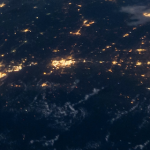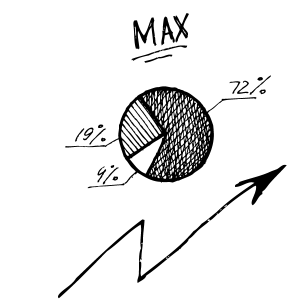After a boom during the economic downturn of the COVID-19 pandemic, applications to law school are returning to more normal levels, falling 12 percent for the coming academic year, according to the Law School Admission Council. When it comes to LL.M. degree programs, the white-hot job market, with law firms boosting pay for new hires to higher levels, has reduced the appeal of taking two-years out to study for some but not all prospective students.
Caryn Voland, Assistant Dean for Graduate Admissions at Georgetown Law, says: “I think many graduate programs experience a slowdown in applications when the job market is strong. When a job market is weaker, some applicants may decide to pursue an LL.M. to strengthen their resume to be more competitive when jobs are scarce. These applicants have less need to beef up their resumes when there are more open jobs.”
She adds that some lawyers may still be waiting until COVID is a non-issue before committing to an LL.M. Others are still recovering from economic challenges because of the pandemic, and aren’t ready to make such a big investment, particularly with the threat of recession rising.
But regardless of the job market, she points out that the majority of our LL.M. students are employed when they apply for the program, and are looking to take their careers to the next level. “In that sense they view it as an investment rather than an opportunity cost,” says Voland.
“I was actually pleased with how normal the application cycle seemed this year, after two years of COVID impacts,” she adds. “There is a decrease in applications from China, but that country still contributes by far the largest number of applications to the international pool.”
Maureen Tracey Leo, the Director of the American Law Program at BU Law, agrees, saying that “there is always a need and a desired for continued education regardless of market conditions” and insisting that enrolment at BU Law has remained robust.
Macroeconomic headwinds
However, she does cite some headwinds, noting that the strong labor market could indeed be a deterrent for some prospective LL.M. students. On top of the macro environment, the pandemic has also posed challenges to recruitment and admissions. “In some cultures, there has been a reticence to be far from home and pursue an academic program where the health protocols are not as well-known and in some cases not as well-respected,” says Tracey Leo.
On the other hand, with travel restricted for years and opportunities reduced as the world addressed coronavirus, she says “we are finding that many students are eager to stake their claim and leave their comfort zones for an education abroad”. This bodes well for LL.M. programs that target foreign lawyers who want a grounding in the US legal system.
Sandra Friedrich, the Assistant Dean of International Graduate Law Programs at Miami Law, says that in the most recent admissions cycle, “we have seen that application numbers largely are back to normal pre-pandemic levels”.
But while for other law schools this means a slowdown in applications, for Miami Law it’s the reverse. Initially in Spring 2020, as many countries went into lockdowns and imposed travel bans, the demand for LL.M. degrees at Miami Law slowed down and student enrollment was disrupted as incoming students did not know what to expect.
“As students experienced disruptions in their personal life from the pandemic, such as virtual school for their children, taking care of family members, experiencing financial hardship related to the pandemic, some delayed their LL.M. study plans,” says Friedrich.
But, as the law school demonstrated that it could efficiently pivot to virtual and hybrid instruction models, mixed with residential classes where appropriate, application and enrolment numbers began to normalize.
Some disruption continued to exist throughout 2021 with regards to visa issuance and travel for international students from certain countries, but for the most part application and enrollment numbers returned to normal levels last year.
“This latest academic year was largely normal here at Miami Law, with most courses being back in the classroom and on-campus lecture and social events for students being held once again,” Friedrich says.
In fact, she says that many of Miami Law’s LL.M. programs have seen an increase in student enrollment and application numbers. “Many prospective students had delayed their LL.M. studies in previous years due to the uncertainty the pandemic brought and are now deciding to pursue their LL.M.”
She adds that even the strong job market may not deter the most ambitious lawyers from attending a graduate law school program. “Since an LL.M. can be completed in as little as nine months, students will be able to take advantage of the strong economy and hiring opportunities and use their additional LL.M. credentials and skills to kick off their post-graduation careers.”










